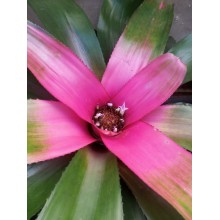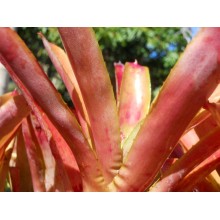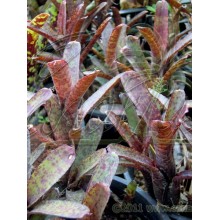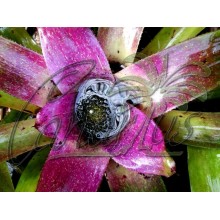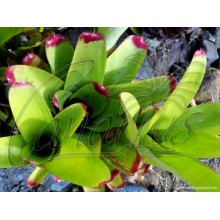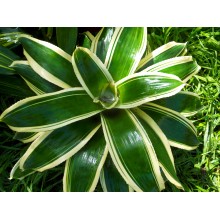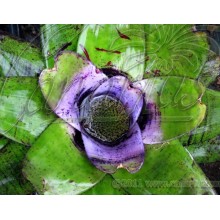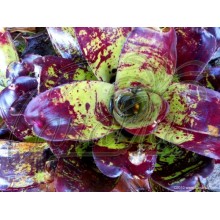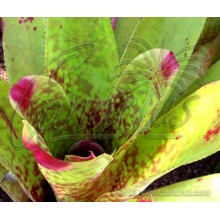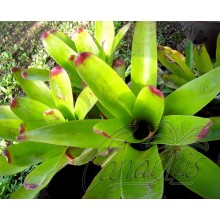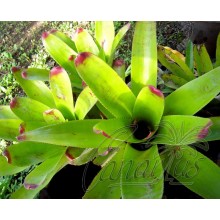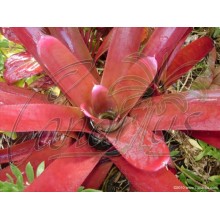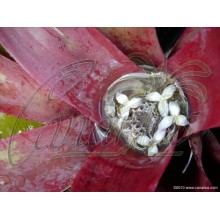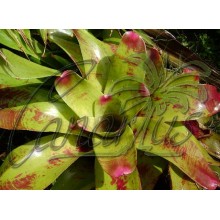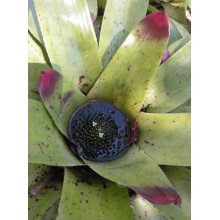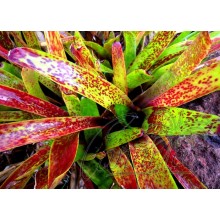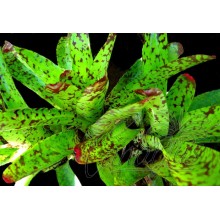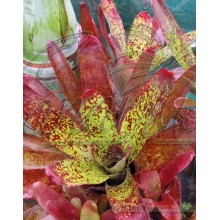General Plants There are 1881 products.

If you like exotic plants, you just came to the right place. Canarius offers the hard-to-find exotic plants which are seldom available in garden centres. Our shop has natural species as well as rare hybrids. We offer exotic plants from the Canary Islands.
Orders are sent to anywhere in Europe and also worldwide. Parcels will reach your home in a few days after shipping (but we also need some days for processing). Feel free to contact us if you have any questions.
Subcategories
-
Succulents
World deserts and dry areas are home to the most interesting plants. Canarius offers an increasing selection of succulent plants of maximum quality, because they are grown outdoors, under the full sun of the Canary Islands.
Succulents or "fat plants" are water-retaining species, adapted to dry conditions. They store succum (juice, water) in their leaves, stems or roots, and often show a stout and fleshy appearance.
-
Exotics
Exotic plants are species from other parts of the world, and they usually have ornamental qualities: a lush foliage, colorful flowers, unusual shapes... Here you can find a great variety of exotic plants: from Bromeliads and Heliconias, to pamls and houseplants.
Exotic plants do not have a particular use. Collectors buy this kind of plants for their rarity, for indoor or outdoor decoration, depending on their features.
-
Fruit, Herbs & Medicinals
Fruit, Herbs & Medicinal plants are focused on getting a better health. In this section, each type of plant produce healthy effects, both fruit trees (Feijoa, Pineapple, Fina de Jete...) and plants for health, such as Graviola, Aloe vera, Callisia fragrans...
In the normal metabolism of all living beings, the organism produces some substances from nutrients latent in the environment; some of these chemicals are part of the process in all (or almost) sort of species. Normally, the useful compounds are concentrated in some of its parts: leaves, seeds, flowers...
Find out your advisable plant and buy it online!
-
Special
On canarius.com we try to remove limits in the field of botany. On our online store we try to facilitate the purchase/sale of plants to anywhere in the world. That's why, we grow from the most common species to the most special plants, as we can see in this section.
-
Neoregelia 'Pink sensation'
Neoregelia 'Pink sensation'
Neoregelia 'Pink sensation', so called because of its striking shade of pink when flowering. This shade can last for several weeks.
21,30 € -
Neoregelia amandae
Neoregelia amandae
Small bromeliad with incredible changing colours. Leaves are thick and glossy, with some typical puckles on the base. Flowers are bright violet-blue. This plant came with no name but it eventually keyed out as Neoregelia amandae.
18,60 € -
Neoregelia ampullacea
Neoregelia ampullacea
Tiny tube-bromeliad, suitable for terrariums, hanging baskets, rockeries or small pots. It is a small Neoregelia adaptable to different conditions.
15,20 € -
Neoregelia burlemarxii
Neoregelia burlemarxii
Medium sized bromeliad, with delicate colours, native to Brazil. Neo burle-marxii has wide, floppy leaves, speckled with violet-pink and green. It turns bright purple when in bloom.
19,80 € -
Neoregelia capixaba
Neoregelia capixaba
Neoregelia capixaba is a beautiful compact bromeliad with bold thick leaves with bright pink tips. Rosettes are held upright on woody stolons. It was described in 1985 from Espirito Santo in Brazil.
22,70 € -
Neoregelia concentrica Purple Center
Neoregelia concentrica Purple Center
This is the supreme clone selected from wild plants, released some years ago from Bullis Bromeliads, in the USA. Leaves are wider and the center of the rosette turns bright purple when blooming. It withstands light frost.
24,00 € -
Neoregelia concentrica Spotted
Neoregelia concentrica Spotted
Very wide and thick leaves, with unreal colours of greys, greens, browns and purples. It also develops the typical concentrical markings. One of the toughest "Neos" - it can survive to about -5 C (23 F)!
28,80 € -
Neoregelia correia-araujoi
Neoregelia correia-araujoi
A gift of nature! This mid-large species from Río de Janerio has showy red and green blotches and a wide water tank. It was described in 1983 as a species but it was considered a natural hybrid during a few years. It belongs to the Neoregelia johannis complex, with thick wide leaves, but markings are much like Neoregelia marmorata.
18,00 € -
Neoregelia cruenta 'Sun King'
Neoregelia cruenta 'Sun King'
This clone of Neregelia cruenta var. cruenta is larger in size and makes an imposing specimes in the landscape. It has stiff thick leaves, bright green with glossy pink tips.
26,30 € -
Neoregelia cruenta var. cruenta
Neoregelia cruenta var. cruenta
This beautiful bromeliad has stiff thick leaves, bright green with glossy pink tips. It grows in coastal areas of SE Brazil, on white sand. It loves full sun.
22,40 € -
Neoregelia cruenta var. rubra
Neoregelia cruenta var. rubra
This variety 'Rubra' has been around for decades. It is an all-red clone with some light silver banding. Its beautiful dull red colour is unmistakeable. Leaves are narrower than in other cruentas.
39,30 € -
Neoregelia farinosa
Neoregelia farinosa
"Farina" means flour. This Neoregelia with bright pink leaves has a powdery-white coating. Neoregelia farinosa is easy but slow, tolerant of different light exposures. It can stand short light frosts in the coastal Mediterranean.
16,70 € -
Neoregelia johannis
Neoregelia johannis
It is the largest of all neoregelias and also one of the cold-hardiest. Astonishing colourful rosettes with wide leaves, 50-90 cm in diameter... or more! Wide, light green leaves with showy pink/purple banding. Give morning sun or light-shade. To be precise, this wild form of Neoregelia johannis belong to the clone named Fairchild.
19,40 € -
Neoregelia johannis 'Itamambuca'
Neoregelia johannis 'Itamambuca'
Neoregelia johannis is one of the most beautiful large sized Neo with wide leaves that are pale-green with red parts. Rosettes reach 50-100 cm in diameter.
31,50 € -
Neoregelia maculata
Neoregelia maculata
A small bromeliad species with nice dark speckling on the top side and light banding on the undersides. Growth is upright tubular, with stiff, 20 cm (8") tall tube-like rosettes. Thrives outdoors in Mediterranean climates.
17,40 € -
Neoregelia marmorata Leme
Neoregelia marmorata Leme
This medium sized species shows an incredible pattern of leaves, marbled in pale green and dark purple. This is a particularly colourful clone, collected in Brazil by Leme.
21,00 € -
Neoregelia marmorata Rigida
Neoregelia marmorata Rigida
Hybrid or selection with spectacular "marmorated" stiff leaves. This is a supreme plant for the garden and takes more direct sun than any other marmoratas that we have grown.
24,90 € -
Neoregelia mcwilliamsii
Neoregelia mcwilliamsii
Unsurpassed classic beauty with perfectly smooth rosettes. Its narrow light-green leaves will show out the brightest red when the center turns colourful, as the plant approaches blooming.
26,00 €
At the moment there are few products in this category General Plants




















